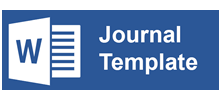Management Science Burdens in Bangladesh: A Case of Food-Services Organizations
DOI:
https://doi.org/10.31181/msa21202516Keywords:
Talent Management, COVID-19, Remote Work, Organizational Resilience, Cross-Training, Digital Communication, Contingency Planning, Performance ManagementAbstract
The COVID-19 pandemic severely disrupted global work environments, particularly in developing economies. This study investigates how a Bangladeshi food-services company managed talent during the early pandemic phase. A survey of 30 mid-to-senior-level managers assessed operational disruptions, remote work challenges, and financial pressures. Quantitative analysis using SPSS, including multiple regression, identified drivers of employee performance decline. Performance decline was significantly predicted by pandemic disruption and resistance to change, explaining 72% of the variance. Strategic practices such as cross-training and remote work planning mitigated performance risks. The findings establish a valuable baseline for longitudinal research. Organizations in developing economies must institutionalize agile, digitally enabled workforce strategies to enhance resilience against future crises.
Downloads
References
Baum, T., & Hai, N. T. T. (2020). Hospitality, tourism, human rights and the impact of COVID-19. International Journal of Contemporary Hospitality Management, 32(7), 2397-2407. https://doi.org/10.1108/IJCHM-03-2020-0242. DOI: https://doi.org/10.1108/IJCHM-03-2020-0242
Chung, H. (2022). Flexible working and work-life balance: Who benefits and at what cost? European Societies, 24(2), 169-188. https://doi.org/10.1080/14616696.2021.1954095.
Caligiuri, P., De Cieri, H., Minbaeva, D., Verbeke, A., & Zimmermann, A. (2020). International HRM insights for navigating the COVID-19 pandemic: Implications for future research and practice. Journal of International Business Studies, 51(5), 697-713. https://doi.org/10.1057/s41267-020-00335-9. DOI: https://doi.org/10.1057/s41267-020-00335-9
Wang, B., Liu, Y., Qian, J., & Parker, S. K. (2021). Achieving effective remote working during the COVID?19 pandemic: A work design perspective. Applied Psychology, 70(1), 16-59. https://doi.org/10.1111/apps.12290. DOI: https://doi.org/10.1111/apps.12290
Bissola, R., Imperatori, B., & Bagnoli, M. (2022). Smart working and talent management in the post-COVID-19 era: Evidence from Italian firms. European Management Journal, 40(3), 301-313. https://doi.org/10.1016/j.emj.2021.08.006. DOI: https://doi.org/10.1016/j.emj.2021.08.006
Bednarska-Wnuk, I., & Grobelna, A. (2022). Pandemic-induced remote work: Challenges and coping strategies. Sustainability, 14(3), 1204. https://doi.org/10.3390/su14031204.
Chowdhury, M. A., Hasan, M. K., & Islam, S. L. U. (2022). Climate change adaptation in Bangladesh: Current practices, challenges and the way forward. The Journal of Climate Change and Health, 6, 100108. https://doi.org/10.1016/j.joclim.2021.100108. DOI: https://doi.org/10.1016/j.joclim.2021.100108
Hossain, M. I. (2021). COVID-19 impacts on employment and livelihood of marginal people in Bangladesh: lessons learned and way forward. South Asian Survey, 28(1), 57-71. https://doi.org/10.1177/0971523121995072. DOI: https://doi.org/10.1177/0971523121995072
Khan, M. R., Tabassum, N., Khan, N. A., & Alam, M. J. (2022). Procurement challenges in public-sector agricultural development projects in Bangladesh. Humanities and Social Sciences Communications, 9(1), 1-13. https://doi.org/10.1057/s41599-022-01468-y. DOI: https://doi.org/10.1057/s41599-022-01468-y
Allen, D. G., Bryant, P. C., & Vardaman, J. M. (2020). Retaining talent: Replacing misconceptions with evidence-based strategies. Academy of Management Perspectives, 34(3), 287-306. https://doi.org/10.5465/amp.2017.0081.
Singh, P., & Misra, S. (2020). Navigating the COVID-19 crisis: HRM practices and resilience. International Journal of Human Resource Studies, 10(3), 64-78.
Gannon, M. J., Roper, A., & Doherty, L. (2021). Navigating new talent realities in the post-pandemic workplace. Human Resource Development International, 24(4), 321-337. https://doi.org/10.1080/13678868.2021.1937817.
Vaiman, V., & Collings, D. G. (2021). Talent management: Advancing the field. European Journal of International Management, 15(3), 327-334. https://doi.org/10.1504/EJIM.2021.115630.
Bednarska-Wnuk, I., & Grobelna, A. (2022). Pandemic-induced remote work: Coping strategies. Sustainability, 14(3), 1204. https://doi.org/10.3390/su14031204. DOI: https://doi.org/10.3390/su14031204
Rousseau, D. M. (1998). The 'problem' of the psychological contract considered. Journal of Organizational Behavior, 19, 665-671. DOI: https://doi.org/10.1002/(SICI)1099-1379(1998)19:1+<665::AID-JOB972>3.0.CO;2-X
Aguinis, H. (2021). Talent management challenges during COVID-19 and beyond: Performance management to the rescue. Human Resource Management Review, 31(2), 100757. https://doi.org/10.1016/j.hrmr.2020.100757. DOI: https://doi.org/10.1177/23409444211009528
Al Ariss, A., Cascio, W. F., & Paauwe, J. (2014). Talent management: Current theories and future research directions. Journal of World Business, 49(2), 173-179. https://doi.org/10.1016/j.jwb.2013.11.001. DOI: https://doi.org/10.1016/j.jwb.2013.11.001
Tarique, I., Briscoe, D. R., & Schuler, R. S. (2022). International human resource management: Policies and practices for multinational enterprises. Routledge. DOI: https://doi.org/10.4324/9780429441462
Cooke, F. L., Schuler, R., & Varma, A. (2020). Human resource management research and practice in Asia: Past, present and future. Human Resource Management Review, 30(4), 100778. https://doi.org/10.1016/j.hrmr.2020.100778. DOI: https://doi.org/10.1016/j.hrmr.2020.100778
Collings, D. G., Mellahi, K., & Cascio, W. F. (2019). Global talent management and performance in multinational enterprises: A multilevel perspective. Journal of Management, 45(2), 540-566. https://doi.org/10.1177/0149206318757018. DOI: https://doi.org/10.1177/0149206318757018
Downloads
Published
Issue
Section
License
Copyright (c) 2025 Md Nowshed Tuhin (Author)

This work is licensed under a Creative Commons Attribution 4.0 International License.













